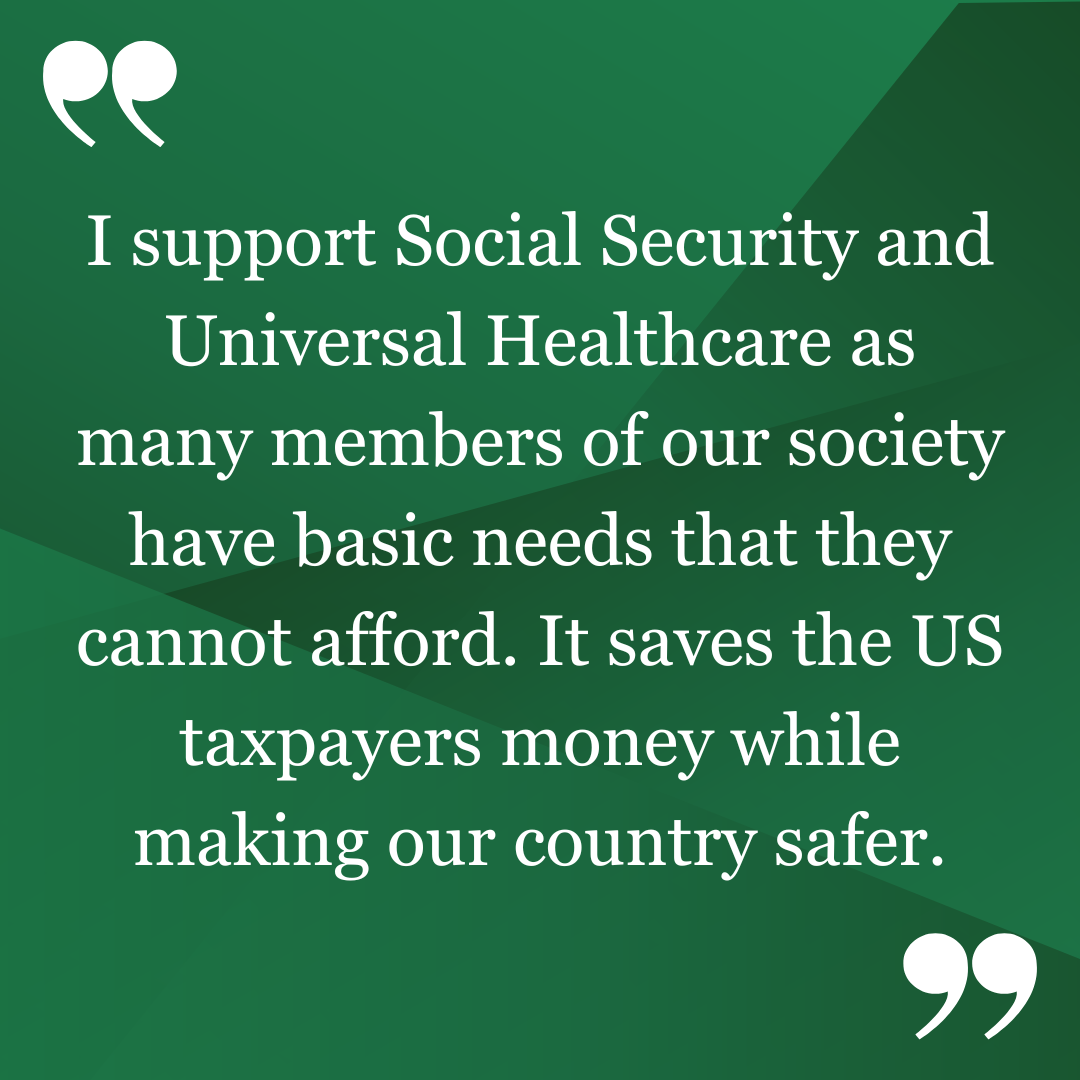Your voice matters. Check your Vermont Voter Registration Today.
Your voice matters. Check your Vermont Voter Registration Today.
CAPITALISM VS
SOCIALISM

I support Social Security and Universal Healthcare as many members of our society have basic needs that they cannot afford. It saves the US taxpayers money while making our country safer.
When discussing policy positions on socialism versus capitalism, especially with regaurd to government takeover of industry and universal healthcare as a safety net, it’s helpful to outline the implications and arguments for each approach:
Socialism
Core Principles
- Government Ownership of Industry: In a socialist system, the government often owns and controls key industries such as energy, transportation, and healthcare. This is intended to ensure that these essential services are provided equitably and not driven by profit motives.
- Economic Planning: Centralized planning is common, where the government makes strategic decisions about production and distribution to meet public needs rather than relying on market forces.
- Wealth Redistribution: Progressive taxation and social welfare programs aim to reduce income inequality and provide a safety net for all citizens.
Government Takeover of Industry
- Rationale: Government takeover is seen as a way to ensure that industries critical to public welfare are managed in a way that prioritizes service and equity over profit. This can lead to greater uniformity in service quality and access.
- Potential Benefits: Reduces the risk of market failures, ensures essential services are universally accessible, and can lead to more equitable distribution of resources.
- Potential Drawbacks: May result in less competition and efficiency. Centralized control can sometimes lead to bureaucratic inefficiencies and reduced incentives for innovation.
Universal Healthcare
- Implementation: In socialist systems, universal healthcare is typically government-funded and provided to all citizens, ensuring that everyone has access to medical services regardless of income.
- Benefits: Reduces health disparities, provides a safety net for individuals, and can lead to better overall public health outcomes.
- Drawbacks: Can lead to higher taxes and potential inefficiencies in the healthcare system. Access to advanced treatments might be limited due to budget constraints.
Capitalism
Core Principles
- Private Ownership of Industry: Capitalism relies on private ownership and market mechanisms to drive economic activity. Industries are owned and operated by private entities rather than the government.
- Market Economy: Decisions about production, pricing, and distribution are driven by market forces, such as supply and demand, with minimal government interference.
- Profit Motive: The pursuit of profit is a primary incentive, believed to drive innovation, efficiency, and economic growth.
Government Takeover of Industry
- Rationale: Government takeover in capitalist systems is usually a temporary measure or a response to market failures. Long-term government ownership of industries is relatively rare.
- Potential Benefits: Can stabilize critical sectors during crises or economic downturns and protect public interests when private markets fail.
- Potential Drawbacks: Risk of inefficiency and reduced market competition. Government control might be less agile compared to private sector responses.
Universal Healthcare
- Implementation: In capitalist systems, universal healthcare may be provided through a mix of private and public options, such as government subsidies or mandates for private insurance.
- Benefits: Can provide a safety net while maintaining private sector innovation and competition. Balances public support with private incentives.
- Drawbacks: May result in disparities in access and quality of care, and can be costly. The balance between public and private funding might lead to complex and varied coverage options.
Balancing Perspectives
Socialism:
Pros
Ensures basic needs and essential services are universally accessible. Reduces economic inequality and provides a robust safety net.
Cons
May lead to inefficiencies and reduced incentives for innovation. Higher taxes and centralization can be challenging.
Capitalism:
Pros
Drives economic growth, efficiency, and innovation through competition. Offers a range of choices and can be more responsive to market demands.
Cons
Can lead to inequalities and gaps in service access. Government intervention is sometimes needed to address market f
Contact Info
Phone: 860-563-8292
Email: matt@matthillforsenate.org
Address: Box 377 W. Burke, VT 05871
